
Many of you still don't know what could happen if you continue to sleep like this all night.
❌ Stop Sleeping With a Fan On at Night
Here’s What Really Happens — And Safer Ways to Stay Cool While You Sleep
Using a fan while sleeping might seem like the perfect solution for a hot room — but it can have unintended side effects on your health and sleep quality. While some enjoy the white noise or breeze, experts warn that using a fan improperly at night can do more harm than good.
Let’s break down what really happens when you sleep with a fan on — and what you can do instead to stay cool and healthy.
⚠️ 1. It Can Dry Out Your Skin, Eyes, and Airways
Fans move air continuously, which reduces humidity in the room — and that can dry out your skin, eyes, sinuses, and throat, especially during long hours of sleep.
This dryness may cause:
-
Nasal congestion
-
Dry or itchy eyes (especially for contact lens wearers)
-
Scratchy throat or cough
-
Nosebleeds or postnasal drip
If you sleep with your mouth open or already suffer from seasonal allergies or asthma, dry air can further irritate your airways and make symptoms worse by morning.
🔎 Added Insight: Prolonged dryness can also disrupt your body’s natural mucus barriers, making you more vulnerable to airborne pathogens and infections.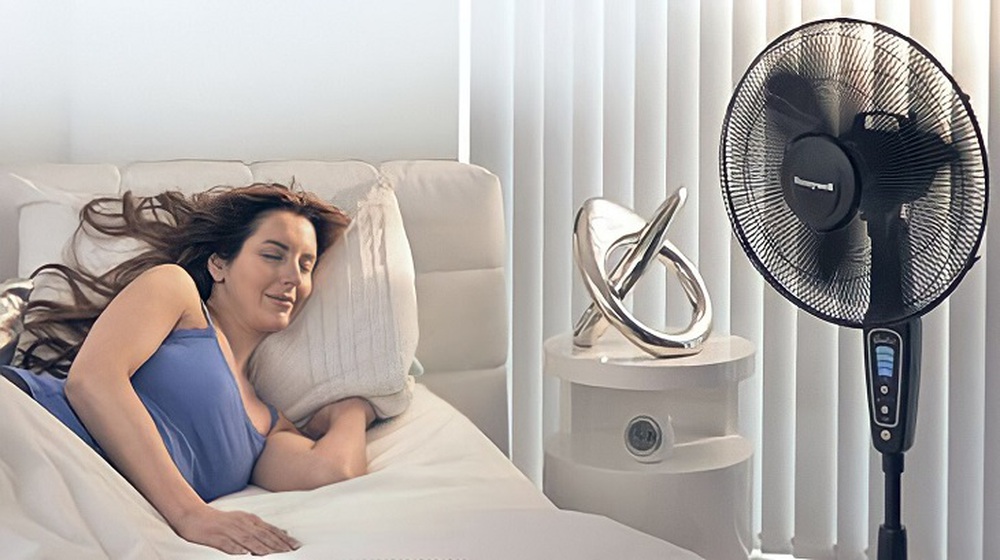
🤧 2. It Blows Dust, Pollen, and Allergens Around
Even fans that appear clean can harbor dust, pollen, mold spores, and pet dander on their blades and vents. When you turn your fan on, these particles are blown directly into your breathing space all night.
This can trigger:
-
Sneezing or coughing
-
Itchy, watery eyes
-
Sinus pressure or congestion
-
Asthma flare-ups or allergic reactions
Those with respiratory conditions or chronic sinusitis may wake up feeling worse than when they went to bed.
💡 Pro Tip: Clean your fan — including blades and protective grilles — at least once a week. Use a damp cloth or vacuum attachment to reduce allergen buildup.
🌀 3. It Can Cause Muscle Stiffness or Nighttime Cramps
Sleeping with a fan pointed directly at your body — especially your neck, shoulders, or back — can lead to uneven cooling of your muscles.
This may cause:
-
Muscle stiffness
-
Morning cramps
-
Neck or shoulder pain
-
Increased risk of body aches from sleeping in a cool draft
The disruption of your body’s natural thermoregulation during sleep can also make you more prone to restlessness or waking up cold in the middle of the night.
💡 Tip: Never point your fan directly at your face or body. Instead, allow the air to circulate gently around the room.
🆕 Added Tip: Use a timer or smart plug to automatically turn your fan off after a couple of hours — this can prevent overexposure to cool airflow.
😪 4. It May Disturb Deep, Restorative Sleep
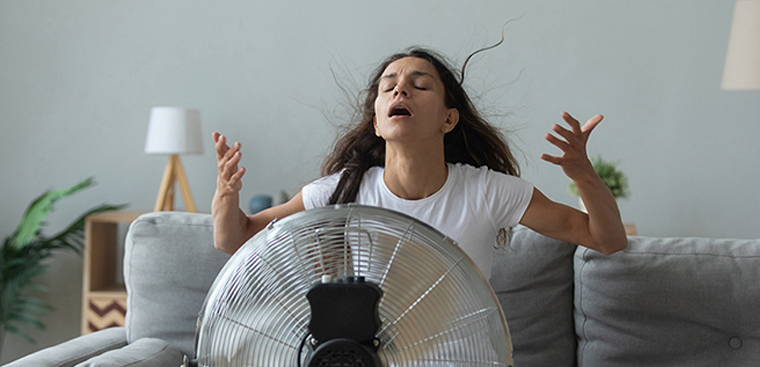
While many people use fans for white noise, constant airflow and subtle temperature changes may actually interfere with your sleep cycles.
Here's how:
-
Sudden drafts can jolt your body out of deep sleep
-
Shifting temperatures cause thermal discomfort, leading to tossing and turning
-
Disrupted sleep reduces the quality of REM and restorative stages
You might wake up feeling tired, groggy, or mentally foggy — despite getting “enough” hours in bed.
🆕 Additional Insight: Sleep researchers note that consistent body temperature is key to restful sleep. Fans may cause micro temperature drops that keep your body in a lighter sleep stage.
🌡️ 5. Your Body May Get Too Cold Overnight
Your body naturally cools down at night as part of the sleep process. However, when exposed to a constant breeze — especially after sweating — your skin can overcool, leading to discomfort or health issues.
Common symptoms include:
-
Morning headaches
-
Stiff neck or joints
-
Increased risk of catching a cold
-
Dehydration from accelerated sweat evaporation
💡 Tip: If you sweat during sleep, use moisture-wicking sheets and avoid having the fan blow directly on your skin.
✅ Healthier Alternatives to Stay Cool at Night
You don’t have to suffer through hot, stuffy nights — but you can stay cool in smarter, safer ways:
-
Use an air purifier or dehumidifier
-
They cool the air subtly while reducing allergens, mold, and pollutants.
-
-
Open windows slightly
-
Create cross-ventilation without direct airflow on your body.
-
-
Switch to breathable bedding
-
Opt for lightweight, moisture-wicking materials like cotton, bamboo, or linen.
-
-
Take a cool shower before bed
-
Lowers your core body temperature naturally and promotes relaxation.
-
-
Stay hydrated throughout the day
-
Even mild dehydration can increase your risk of overheating, leg cramps, and disrupted sleep.
-
-
Use a ceiling fan with an indirect setting
-
Let air circulate without blowing directly on your body.
-
🆕 Bonus Tip: Consider a cooling mattress topper or gel pillow for passive cooling without fans or electricity.
💬 In Summary
Sleeping with a fan isn’t inherently dangerous, but using it the wrong way — or relying on it too often — can lead to:
-
Dry skin, eyes, or throat
-
Allergic reactions from circulating dust
-
Muscle stiffness or nighttime chills
-
Interrupted, low-quality sleep
To stay cool safely, remember to:
✅ Keep your fan clean
✅ Don’t aim it directly at your body
✅ Support airflow with smart, breathable sleep habits
Your sleep should leave you feeling refreshed — not congested, cramped, or fatigued.
News in the same category


The 32-year-old teacher who almost lost her life to diabetes

6 Benefits of Eating Garlic Before Bedtime

WARNING SIGNS OF POOR BLOOD CIRCULATION THAT MOST PEOPLE OVERLOOK AND HOW TO SPOT THEM EARLY
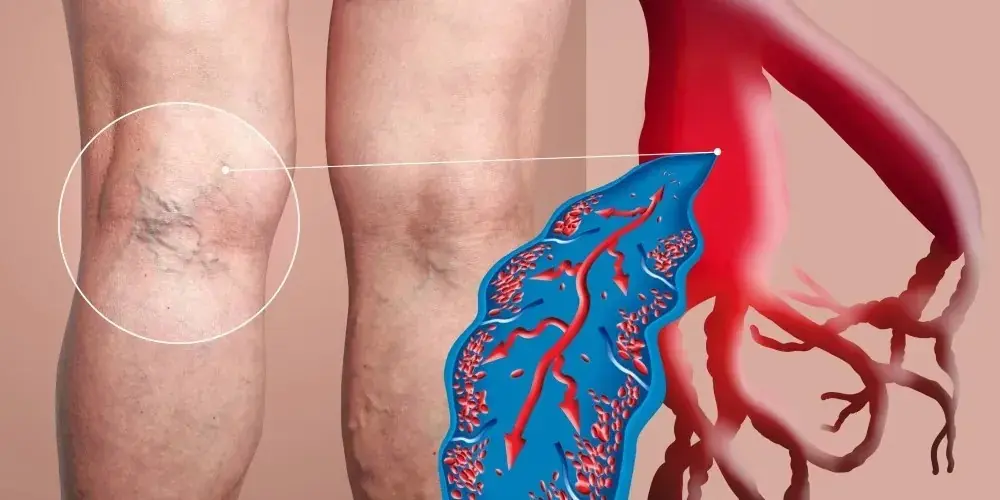
Thrombosis can strike suddenly — know the symptoms before it's too late
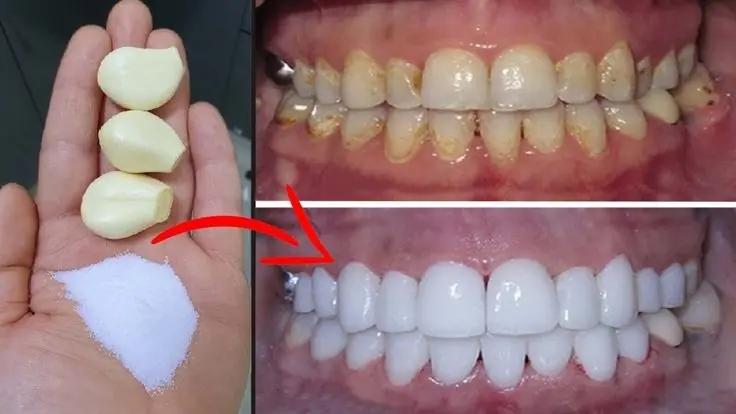
Secret that Dentists don't want you to know: Remove Tartar and Teeth Whitening in just 2 minutes

The #1 Enemy of Your Thyroid: Stop Eating This Food Immediately!

7 Warning Signs of a Heart Attack You Can Spot Up to a Month Before—And the One Deadly Sign You Must Never Ignore

This Food Helps Activate Your Body’s Stem Cells So It Can Repair Itself Naturally

These 4 Herbs Can Protect Your Brain From Alzheimer’s, Depression, Anxiety & Much More

Hidden Signs Constipation Is Affecting Your Whole Body

Doctor has message for anyone who takes collagen

Remove one item from your home to live longer, says a 92-year-old cardiologist
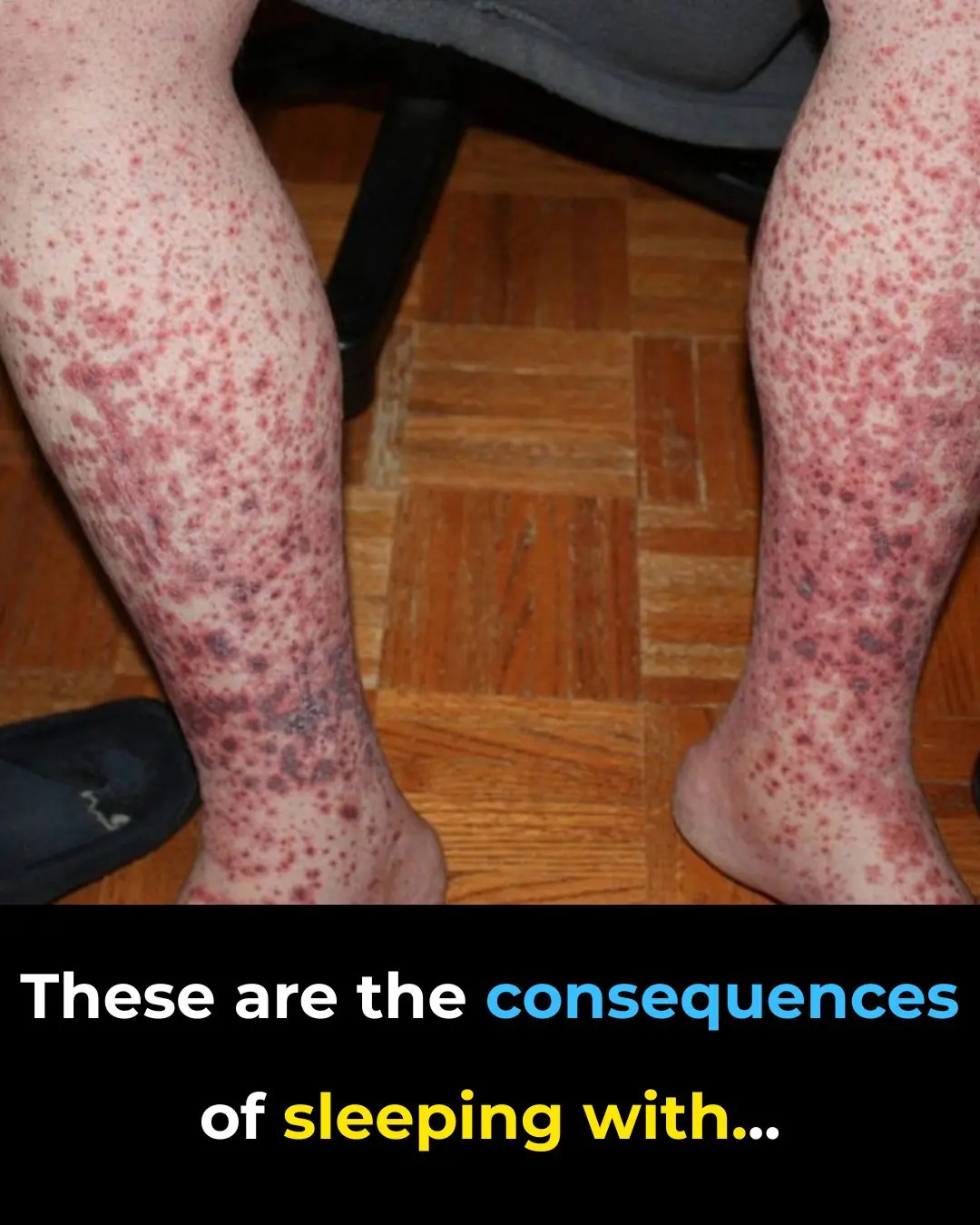
The Hidden Costs of Sleeping with the Wrong Person: What You Need to Know

Clean Your Blood Vessels Naturally

Cracked Heels Could Be a Warning Sign

SEVEN TYPES OF PAIN THAT SIGNAL MAJOR RED FLAGS FOR YOUR HEALTH

This Is What Happens to Your Body When You Add Turmeric to Your Daily Diet, According to Science
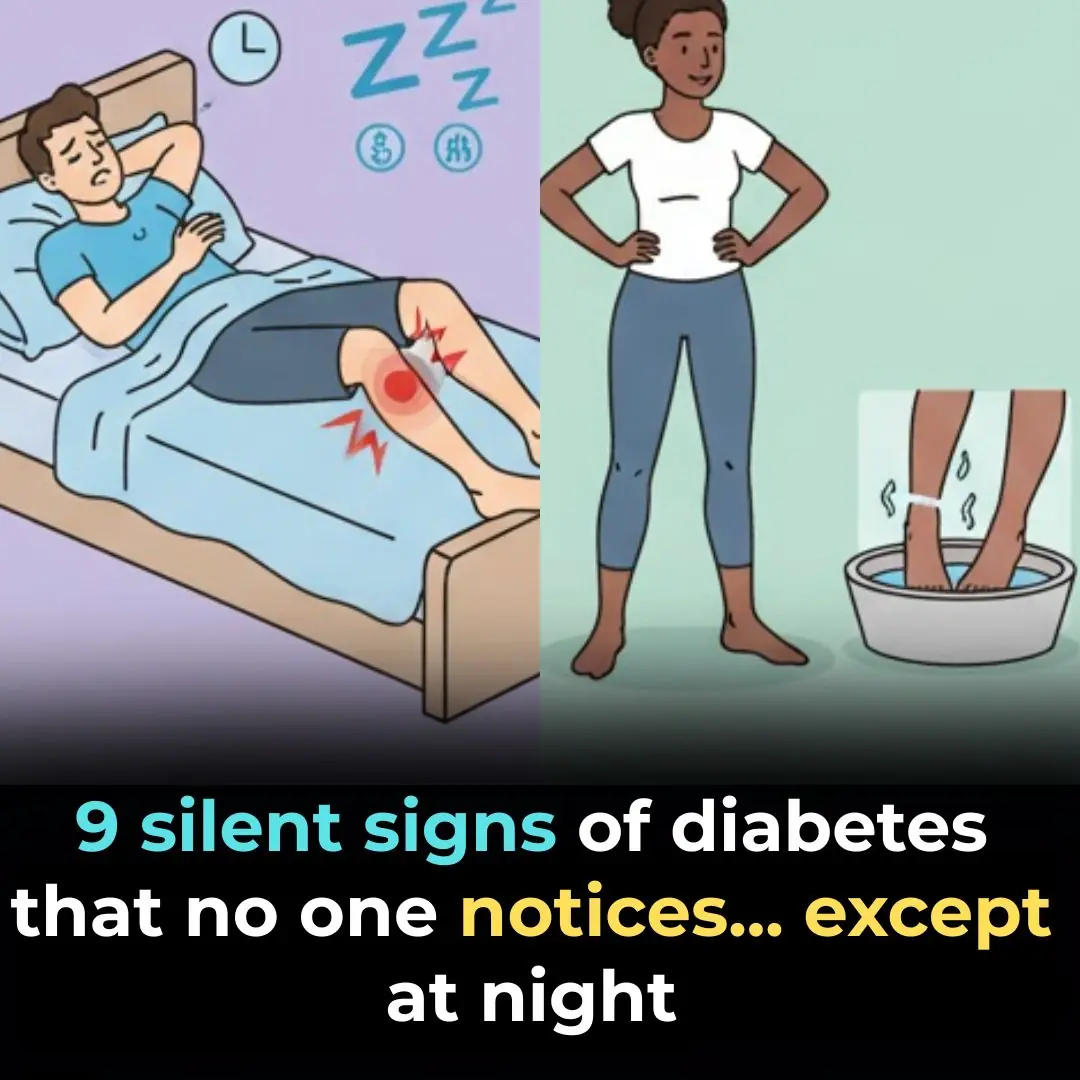
9 Signs of Diabetes That Appear at Night: What You Need to Know!
News Post

Put salt in your toilet. Here's why. This is something plumbers will never tell you

Guava Leaves for Blood Sugar Control: Nature’s Gift for Diabetics

Banana Blossom: Health Benefits, Recipes, and Uses

Common Mullein: Benefits and Uses of Nature’s Versatile Herb

Fig Leaves: Surprising Benefits and Uses

Inner Vitality Elixir: Benefits of Uda Seeds, Lemon, Aidan Fruit, and Ginger for Women’s Health

When Checking Out of a Hotel, Don’t Fold the Bedding—Not Knowing This Will Only Cause Trouble

Some of the Benefits of Castor Leaves and the Seed

The Versatile Uses of Stubborn Grass

Pour Beer into Table Salt to Solve Many Household Problems – Wish I Knew This Trick Sooner!

The Best Tea for Mornings and After Dinner: A Powerful Blend for Health

Mimosa Pudica Tea: How to Prepare and Health Benefits

If you have this plant in your garden, don’t cut it down – it’s incredibly valuable!

Euphorbia Hirta (Asthma-plant): Traditional Uses and Applications

Harnessing the Power of Goose Grass: A Guide to Its Preparation and Therapeutic Uses

The water pipe is clogged, do this way to solve it easily, no need to call a plumber

Woman Left with Swollen Lip After Centipede Bites Her in Sleep

Cut soap and mix with sugar and put it in the corner of the house: Mosquitoes will fly black, the whole house will be clean and fragrant, everyone will like it
